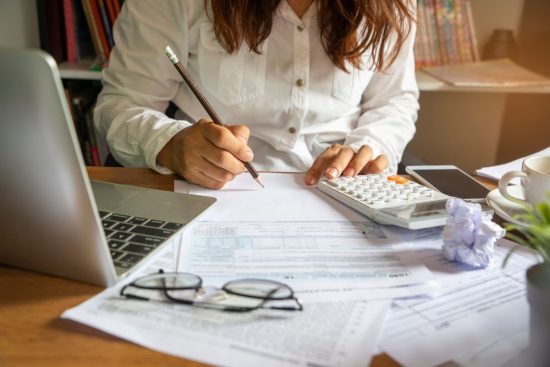In Texas, businesses are subject to personal property taxes on various types of tangible assets they own. One significant asset class that impacts this tax is inventory. Business inventory includes all products or materials that a business holds for sale or for use in producing goods or services.
Understanding how inventory influences business personal property taxes is essential for companies looking to manage their tax liabilities effectively. In this article, we’ll explore how inventory is assessed for tax purposes, exemptions that may apply, and strategies businesses can use to reduce their tax burden.
What is Business Personal Property Tax?

Before we get into how inventory impacts taxes, it’s important to understand what business personal property tax is. In Texas, counties assess this tax on tangible assets such as machinery, equipment, furniture, and inventory. The Texas Tax Code requires businesses to render their assets annually to the county appraisal district by April 15. The appraised value of this property becomes the basis for the tax calculation.
How is Inventory Assessed?
For property tax purposes, inventory is typically valued as its fair market value as of January 1 each year. This means that the county appraisal district will assess the value of your inventory based on its market value at the start of the tax year.
Types of Inventory that May be Taxed
- Raw materials: Items used in manufacturing but not yet in a finished state.
- Work-in-progress: Partially completed products still undergoing construction.
- Finished goods: Completed products held for sale to customers.
- Supplies: Materials that will be consumed in the production process.
Exemptions for Inventory
Texas offers a few significant exemptions for business personal property taxes that can reduce or eliminate taxes on certain types of inventory.

1. Freeport Exemption
A Freeport Exemption allows certain types of inventory to be exempt from taxation if they meet certain criteria. To qualify, inventory must:
- Consist of goods, wares, merchandise or materials.
- Be shipped out of Texas within 175 days after acquisition or manufacture.
This exemption is particularly beneficial for businesses engaged in importing, exporting, or distributing goods. If your business holds inventory that is destined to leave the state within the specified timeframe, you can apply for this exemption to avoid paying business personal property taxes on that inventory.
2. Goods-in-Transit Exemption
Another exemption that can reduce your tax burden is the Goods-in-Transit Exemption. This applies to inventory stored in warehouses in Texas, provided that the goods are destined to be transported out of the state. To qualify, the inventory must:
- Be acquired or manufactured in Texas.
- Remain in the state for less than 175 days.
The Goods-in-Transit Exemption is similar to the Freeport Exemption, but it specifically covers goods held temporarily in public warehouses before being shipped elsewhere.
Strategies for Minimizing Inventory Taxes
While inventory is a necessary part of doing business, managing your inventory effectively can help minimize your property tax liability. Here are a few strategies:

1. Timing Inventory Purchases
By strategically timing when you purchase inventory, you may be able to reduce the amount you hold when the appraisal district assesses its value on January 1. Reducing the inventory you hold on this key date can lower your taxable value for the year.
2. Apply for Exemptions
If you qualify for Freeport or Goods-in-Transit exemptions, make sure you apply by the deadline. These exemptions can result in substantial tax savings, especially for businesses with significant amounts of inventory that meet the criteria.
3. Report Accurately
Overreporting the value of your inventory can result in paying more taxes than necessary. Be sure to assess inventory accurately, factoring in any obsolescence that would reduce its market value. This is particularly important for slow-moving or obsolete stock.
4. Work With a Property Tax Consultant
Given the complexity of Texas business personal property taxes and the potential for significant savings, many businesses find it helpful to work with a licensed property tax consultant. Consultants can assist with accurate valuation, apply for exemptions, and even represent your business in tax disputes or appeals.
Conclusion
Inventory is a key component of Texas business personal property taxes, but with proper management and planning, businesses can minimize their tax liabilities. Taking advantage of available exemptions like the Freeport and Goods-in-Transit exemptions, accurately valuing inventory, and working with a tax consultant are all strategies that can help reduce the financial burden of personal property taxes. By understanding how inventory affects your business personal property taxes, you can take proactive steps to protect your bottom line.









